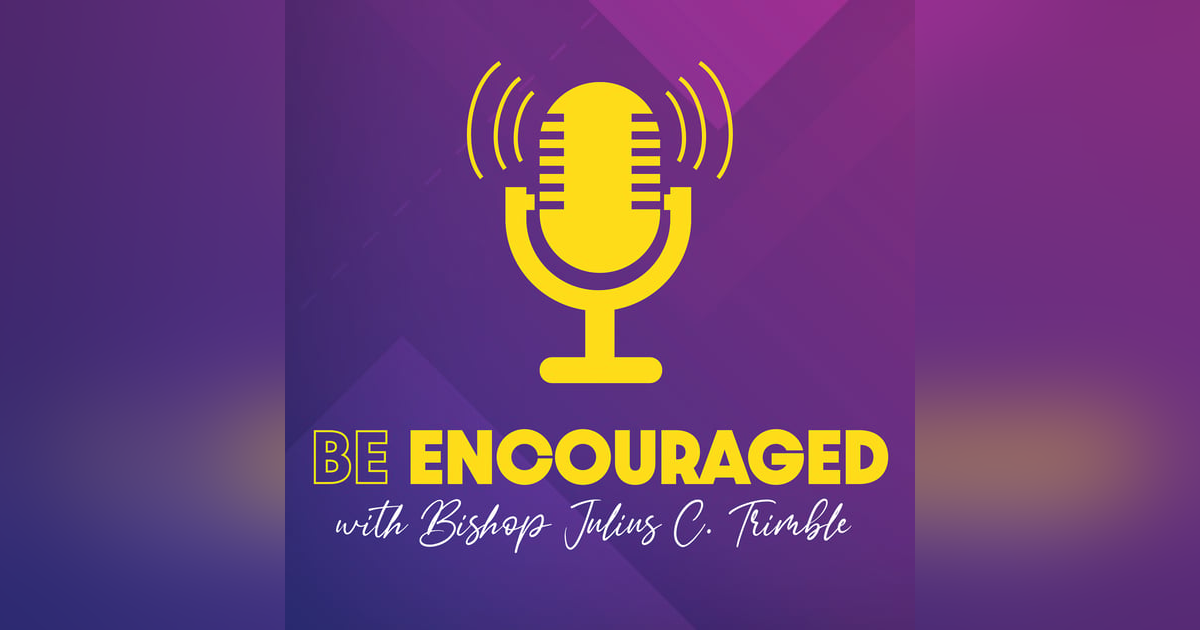From Local Churches to Medical Facilities: How to Help in the Opioid Crisis. Part 2 of a Conversation with Rev. Randy Davis from Briannas Hope and the Author of "Recovery Conversations"

Bishop Julius C. Trimble is the Resident Bishop of the Indiana Area of the United Methodist Church.
Bishop Trimble has the personal mission to encourage all people with the love of Jesus Christ to rise to their highest potential. It is his commitment to his personal mission that led Bishop Trimble to create the “To Be Encouraged” Podcast along with co-host Rev.Dr. Brad Miller.
Bishop Trimble says, “I am compelled by Jesus to share with you an encouraging word or two about Jesus, theology, the Bible, the pandemic, the environment, racism, voting rights, human sexuality, and the state of the United Methodist Church.”
To Be Encouraged with Bishop Julius C. Trimble is to be published weekly and is available at www.tobeencouraged.com and all the podcast directories.
https://www.inumc.org/bishop/office-of-the-bishop/
Episode 070:
From Local Churches to Medical Facilities: How to Help in the Opioid Crisis. Part 2 of a conversation with Rev. Randy Davis from Briannas Hope and the author of "Recovery Conversations"
Part 1, Episode 069 is available at this link:
Introduction:
In episode 070 of "To Be Encouraged," Rev. Dr. Brad Miller engages in a powerful discussion with Bishop Julius C. Trimble and guest Randy Davis about their efforts to combat the opioid crisis. With personal experiences and a shared conviction, Davis shares his insights on how people can support and engage with the ministry. In this blog post, we will explore three key takeaway points from their discussion.
1. Partnering with Communities:
The first key takeaway from the conversation is the importance of churches partnering with various substance abuse centers and medical facilities to provide a faith-based process for recovery. Bishop Trimble emphasizes ongoing training for pastors and the role of the church as a place for individuals to find help for their physical, spiritual, and mental needs. By engaging with local communities, churches can offer resources and support, thus becoming an integral part of the recovery process.
Randy Davis highlights the necessity of intentionality from the church. Someone within the congregation must champion the cause and have the passion to see the work through. However, Davis acknowledges the stigma and bias that still exist within many churches and emphasizes the need for overcoming these barriers to create a welcoming environment for those seeking help.
2. Accessing Treatment and Recovery:
The second key takeaway focuses on the challenges of accessing treatment and recovery programs. Davis highlights that while recovery resources are available to everyone in any county, there may not always be a facility in each county. However, through the ABL Better Life program, there are multiple means of accessing resources and guidance online.
One particular concern mentioned by Bishop Trimble in the discussion is the limited access to recovery plans, with only 20% of actively addicted individuals having access to such programs. The conversation delves into the importance of professionally administered medically assisted treatment (MAT), emphasizing the significance of proper care and monitoring by qualified medical professionals. It is essential to strike a balance between effective treatment and avoiding the potential pitfalls of dependency on medication.
3. Making a Difference:
The final key takeaway is the impact that individuals and communities can have in making a difference in the lives of those struggling with addiction. Davis emphasizes the power of choice and the personal responsibility for individuals to make the decision to seek recovery. Alongside professional assistance, support from family, friends, and the community can make the journey towards recovery less painful.
Moreover, both guests stress the need for education and raising awareness within the church community. By sharing stories of success and providing resources for clergy and laypeople alike, churches can play an essential role in fostering an environment of empathy, understanding, and support for those affected by the opioid crisis.
Conclusion:
The conversation between Bishop Julius C. Trimble and Randy Davis in this episode of "To Be Encouraged" sheds light on the opioid crisis and offers insights into how communities, churches, and individuals can have a significant impact in supporting recovery. Through collaboration, intentionality, and education, churches can become beacons of hope for those seeking to break free from the grasp of addiction. By providing resources, understanding, and embracing the power of choice, we can collectively work towards a future where recovery is accessible to all and the quality of life in every community is improved.
Remember, change begins with empathy, understanding, and a willingness to support those in need. Let's spread hope and healing as we tackle one of society's most pressing challenges — the opioid crisis.
For More Information on "A Better Life-Brianna's Hope" Randy Davis' book "Recovery Conversations" and the Podcast "Faith in Your Recover"
got to: https://www.ablbh.org/


